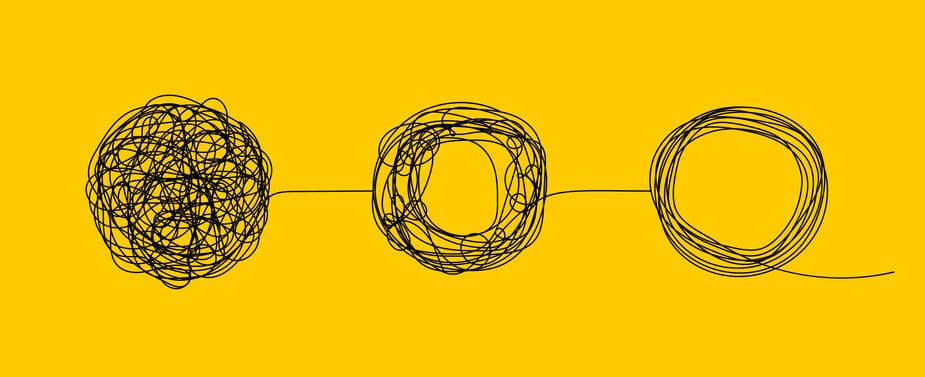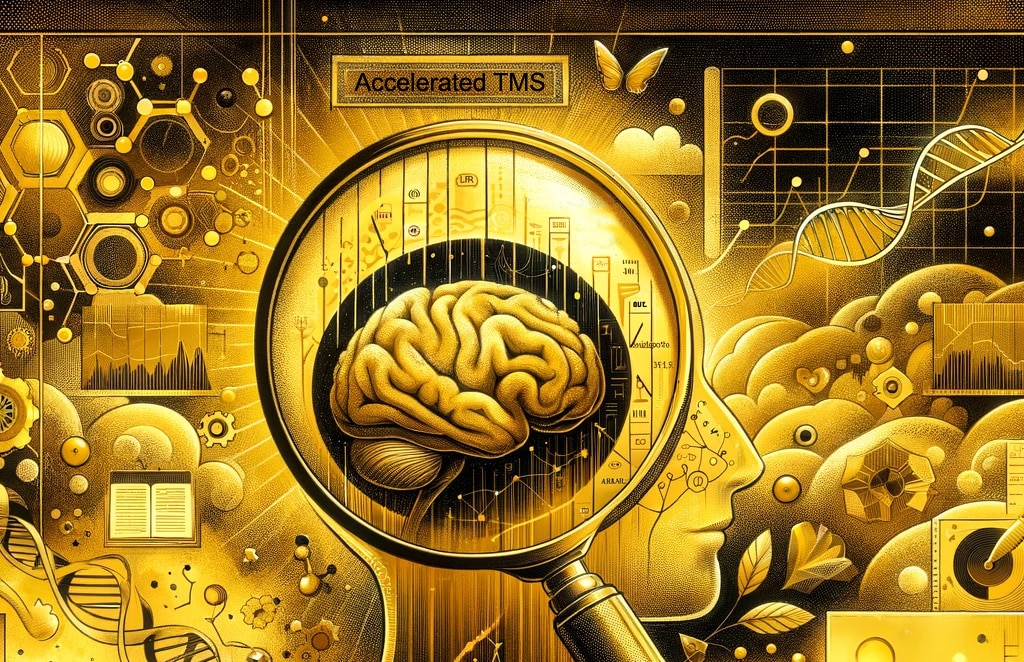Rapid Results for DC Residents Suffering From Depression
Many DC residents are juggling demanding work obligations along with family responsibilities for children and aging parents, leaving self-care on the back burner. So, when chronic depression or anxiety steals your motivation, peace of mind, and ability to cope, it impacts every aspect of your life.
You may have tried various medications or therapies with lackluster results. However, an innovative treatment option called ketamine infusion therapy is offering new hope for Washington, DC residents.
In this article, we’ll walk you through the basics of ketamine and give you the information you need to know about ketamine infusion therapy to treat depression. We’ll also share a checklist to help guide you as you select a reputable provider convenient to where you live or work.
What is Ketamine?
Ketamine has a long history as an FDA-approved anesthetic and pain reliever. In low, carefully controlled doses under medical supervision, it can rapidly reduce the symptoms of mood disorders and anxiety. Numerous studies confirm ketamine’s ability to swiftly improve depression and post-traumatic stress disorder (PTSD) when other methods have failed.
According to researchers at Yale School of Medicine, response rates can reach 70% for those who qualify as good candidates (people who have tried multiple classes of antidepressants). Even a short-term lifting of symptoms helps many people regain perspective and control of their lives. However, effective treatment is judged by the sustainability of treatment, for ketamine that includes long-term booster infusions to maintain the positive neuroplastic changes in the brain.
Leading psychiatric organizations like Washington Interventional Psychiatry increasingly recognize ketamine therapy as an invaluable tool in the treatment of depression in those who are unresponsive to other options.

Why Should I Consider Ketamine Infusion Therapy for Depression?
Ketamine is unlike traditional anti-anxiety and anti-depressant medications that target the “big three” brain chemicals:
- Serotonin: regulates happiness and stability
- Dopamine: takes care of drive and motivation
- Norepinephrine: allows focus and attention control
Targeting these chemicals can provide relief for some people suffering from depression and anxiety. But for others, optimizing levels of these neurotransmitters is not enough to produce a full and sustained recovery. Depression has complex underlying causes that can involve more than chemical imbalance.
To address these harder-to-treat cases, ketamine infusions work on glutamate and their NMDA receptors, which can influence mood and cognition. Also, concurrently, ketamine can lead to a “resetting”of neural circuits stuck in depression-sustaining patterns. Ketamine can, therefore, rapidly restore well-being, optimism, and clarity.
Additionally, clinical evidence confirms that results extend well beyond the initial dose. Ketamine biologically repairs neural pathways disrupted by stress, trauma, and thought patterns embedded over the years. So, the benefits of ketamine continue with additional infusions.
How Do Ketamine Infusions Work?

When properly conducted in a clinical setting, typical ketamine infusion therapy protocol involves six IV treatments over a two to three-week period, followed by periodic maintenance sessions. You simply relax in a pleasant, spa-like setting while a tiny amount of ketamine infuses into your bloodstream over 40 minutes. Effects generally last for days to months.
Ketamine has proven its profound antidepressant effects, often successful without the addition of psychotherapy. However, a growing body of research demonstrates that combining ketamine with psychotherapy can potentially yield even greater results. This combination is now known as Ketamine Assisted Psychotherapy (KAP), which is particularly useful for those clients struggling with trauma-related mental health conditions.
Is Ketamine Treatment Safe?
Unlike the long list and sometimes long-lasting side effects associated with anti-depressants, ketamine infusion side effects are short-lived due to its relatively short half-life (time needed for the body to metabolize ½ of the drug). Also, the psychedelic properties of ketamine are often a benefit that people report as pleasant and calming.
One patient reported the following: “It’s hard to explain, but I would say it feels like a peaceful detachment from mental stress.” Another said, “I could actually feel my bad thoughts being replaced by clarity, like knots untying themselves inside my brain.”
As with any medical treatment, it is important to understand the safety and effectiveness of ketamine infusion therapy. While ketamine is generally considered safe when administered under medical supervision, there are potential side effects and risks associated with the therapy.
During the IV infusion, you may temporarily experience high blood pressure, headache, or nausea. These dissipate shortly after the session ends and, in the correct setting, need to be treated if they are too high or intolerable. During the infusion, patients should be closely monitored to ensure their safety and comfort. Consulting with an interventional psychiatrist who specializes in mental health conditions and uses ketamine infusion therapy in a medical setting should help set realistic expectations and determine if this treatment is right for you. A full evaluation must be conducted by a trained psychiatrist to rule out any potential psychiatric concerns prior to undergoing treatment.
Finding a Ketamine Infusion Therapy Provider Near You
Now that you understand the potential benefits and considerations, the next step is to find a reputable and experienced psychiatrist who also provides ketamine infusion therapy near you.
Start by conducting thorough research online. Look for psychiatrists or mental health clinics that specifically offer ketamine infusion therapy or ketamine-assisted therapy. Read Google reviews and testimonials from previous patients to get an idea of their experiences and outcomes. Pay attention to factors such as the provider’s credentials, residencies and fellowships in psychiatry, years of experience, and patient satisfaction.
I visit Washington Interventional Psychiatry for treatment once a month (for just over a year now). WOW, that is all I have to say! The treatment (ketamine) is the most effective medication I have ever had. Honestly, I have tried every pill under the sun, and none have worked like receiving ketamine.
—Adam (Google Review)
Additionally, reach out to your primary care physician or mental health professional for recommendations. They may be aware of local psychiatrists who offer ketamine infusion therapy or can refer you to specialists in the field. Personal recommendations from trusted healthcare professionals can help you make an informed decision.
Once you have identified potential psychiatrists, schedule consultations to discuss your specific needs and ask any questions you may have. This is an opportunity to assess the psychiatrist’s expertise, approach to treatment, and overall compatibility. Consider asking about their protocols, success rates, potential side effects, and any additional services they offer to support your well-being.
Don’t let depression control your life any longer.
Discover the potential of ketamine infusion therapy and take the first step towards unlocking relief and reclaiming your well-being.

About the Author: Dr. Navin Reddy, a Yale University School of Medicine-trained psychiatrist, is a Clinical Assistant Professor at George Washington and Howard University Hospitals. As a co-founder of Washington Interventional Psychiatry, he’s dedicated to transformative care. With expertise in complex cases, Dr. Reddy focuses on adults with challenging conditions, including hard-to-treat depression, bipolar disorder, anxiety, and substance addiction. Dr. Reddy is board-certified by the American Board of Psychiatry and Neurology.
About Washington Interventional Psychiatry (WIP):
Washington Interventional Psychiatry is located at 4325 49th Street NW, Suite 200, Washington, DC 20016. Our practice group is comprised of a dynamic team of seasoned clinicians who blend traditional medication strategies with evidence-based, rapid-acting treatments. From transformative options like Ketamine Intravenous Therapy, Esketamine Intranasal Therapy (Spravato), and Ketamine Assisted Psychotherapy (KAP) to accelerated TMS (Transcranial Magnetic Stimulation), our range of interventions is designed to complement or even replace conventional approaches. WIP isn’t just a clinic – it’s a beacon of hope for those seeking effective, rapid solutions to mental health challenges for adults and children. To learn more or to schedule a complimentary consultation, visit WIP’s website or call 202.525.5123.



